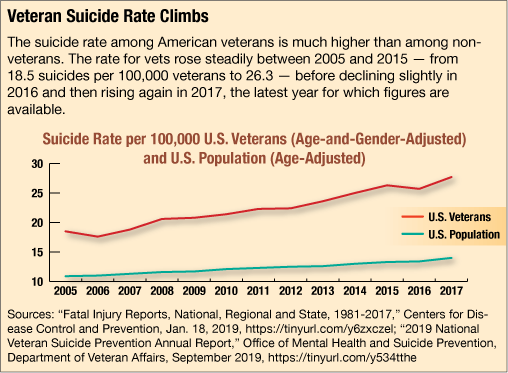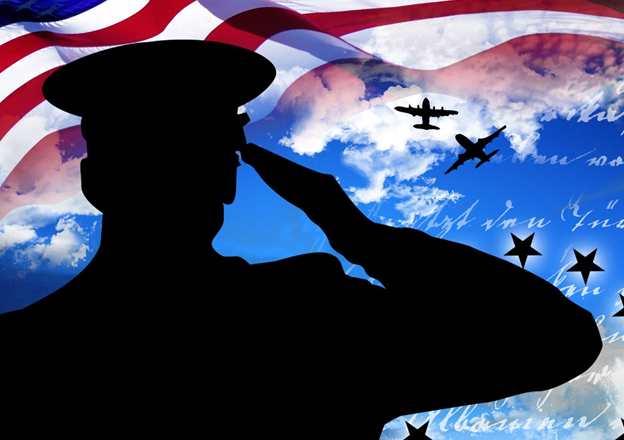Cherishing our freedom as Americans is an integral part in preserving our history. To engage in freedom of the press, for example, is a right that should not be taken for granted. According to The World Press Freedom Index 2021, 132 countries have restricted this unalienable right. American veterans have made profound sacrifices to protect our country’s freedoms, yet many of these same men and women find themselves living in severe poverty or homeless when they return from their duties. Therefore, it is imperative to gain a deeper understanding of the sacrifices that veterans make and why we should keep them in our hearts during Thanksgiving.
As we ponder veterans’ unequivocal generosity, one must first grasp a general understanding of what defines the military. The Army was first chartered by the Continental Congress on June 14, 1775. These soldiers strive to provide land dominance across a full range of military operations. With a fleet of components including cruisers, aircraft carriers, and submarines, the Navy strives to protect the waterways of America. The mission of the Air Force is to establish air superiority in order to support ground troops or enforce cyber defense. Other branches of the military include the Marine Corps, Coast Guard, and Air Force.
Unfortunately, once veterans return from their services in the aforementioned branches, their ability to reintegrate into society is arduous. Veteran difficulties stem from physical disabilities, a lack of public support, denial of benefits for integration assistance, and psychological effects. For example, 1 in every 5 veterans report traumatic experiences that have led to Post Traumatic Stress Disorder (PTSD); many PTSD cases go unreported, as well, due to a lack of resources or a feeling of humiliation (Veteran PTSD). Ultimately, veterans’ sense of identity, purpose, and self-worth become questionable after their generous service. As a result, many struggle to find a new career path, pursue an adequate college education, and locate a new home.
Over five million veterans suffer from a mental or physical disability and about 1.5 million veterans live in poverty. A significant number—44% who have served in Iraq and Afghanistan alone, according to the Pew Research Center—say that they have had significant problems readjusting to civilian life. The Veterans Administration (VA) provides veterans with benefits, assuming they are honorably discharged; however, approximately 75% of all applicant veterans are denied these benefits due to a lack of “enough evidence to support [their] disability,” which greatly hinders their access to quality healthcare and affordable housing (Why are Veteran).
Although the COVID-19 pandemic has had unimaginable effects on all people throughout the world, it has been especially difficult for veterans. According to the defense department, military and veteran suicide is up by nearly 25%—the equivalent of about 20 deaths per day (Military). The pandemic has created isolation among veterans who depend on interactions with each other to maintain their mental health. The rise of homelessness has also skyrocketed as a result of the pandemic. Research shows that young veterans have high unemployment rates and low labor force participation due to poor health standards and employer discrimination. These same people have risked their lives for our freedom and are now homeless in major cities across our nation.
An example of an organization that directly benefits veterans is the Veterans Multi-Service Center (VMC), headquartered in Philadelphia, which places thousands of veterans in safe housing and offers support to those who seek employment. The VMC’s mission is to provide services, programs, and opportunities to advance the lives of U.S. military veterans (Mission). The VMC has saved a countless number of lives, giving back to the men and women in the surrounding area who have served our country with pride. However, this generous organization is unable to function without your support. You are able to make an impact not only by volunteering or donating to the organization but also by saying a simple, yet meaningful, “Thank you.” For more information, visit https://www.vmcenter.org.
In addition to supporting the VMC, please consider showing your appreciation directly to those who have served our country. The University of Pennsylvania’s edX course The Science of Generosity: Do Good Feel Good, states that “the more fuel [willingness to appreciate others] you have, the farther your car can go. But if you don’t have a steering wheel, you’ll go right off the cliff.” Saying “Thank you” provides the “fuel” for your generosity; however, you can only control your “steering wheel” when you can fully comprehend the reason for that generosity, which will eventually drive your passion.
As we reflect on whom we are grateful for, especially during this time of Thanksgiving, it is crucial that we are grateful for our veterans. It is the veteran, not the reporter, who has given us freedom of the press. It is the veteran who saluted the flag, who served beneath the flag, whose coffin will be draped by the flag. We must recognize the veteran who went away as one person and came back another, or did not come back at all.

References
Handy, F. (Director). (2021). The Science of Generosity: Do Good…Feel Good [Film]. edX.
Ladika, S. (n.d.). Veterans’ Struggles. CQ Researcher. Retrieved November 28, 2021, from https://library.cqpress.com/cqresearcher/document.php?id=cqresrre2019100402
Loughran, D. S. (n.d.). Why Is Veteran Unemployment So High? RAND CORPORATION. Retrieved November 28, 2021, from https://www.rand.org/pubs/research_reports/RR284.html
Military Deaths by Suicide Jumped 25% at End of 2020. (2021, April 5). Military.com. Retrieved November 28, 2021, from https://www.military.com/daily-news/2021/04/05/military-deaths-suicide-jumped-25-end-of-2020.html
Mission and Vision. (n.d.). Veterans Multi-Service Center. Retrieved November 28, 2021, from https://www.vmcenter.org/about/mission-and-vision/
Morin, R. (n.d.). The Difficult Transition from Military to Civilian Life. Pew Research Center. Retrieved November 28, 2021, from https://www.pewresearch.org/social-trends/2011/12/08/the-difficult-transition-from-military-to-civilian-life/
Reporters Without Boarders. (n.d.). World Press Index 2021. Retrieved November 28, 2021, from https://rsf.org/en/ranking
Veteran PTSD Statistics That Everyone Should Know. (n.d.). Heros’ Mile: For Veterans By Veterans. Retrieved November 28, 2021, from https://www.heroesmile.com/veteran-ptsd-statistics-that-everyone-should-know/why-are-veteran-disability-claims-delayed-and-denied. (n.d.). Darras Law. Retrieved November 28, 2021, from https://www.longtermdisabilitylawyer.com/2016/11/why-are-veteran-disability-claims-delayed-and-denied/

